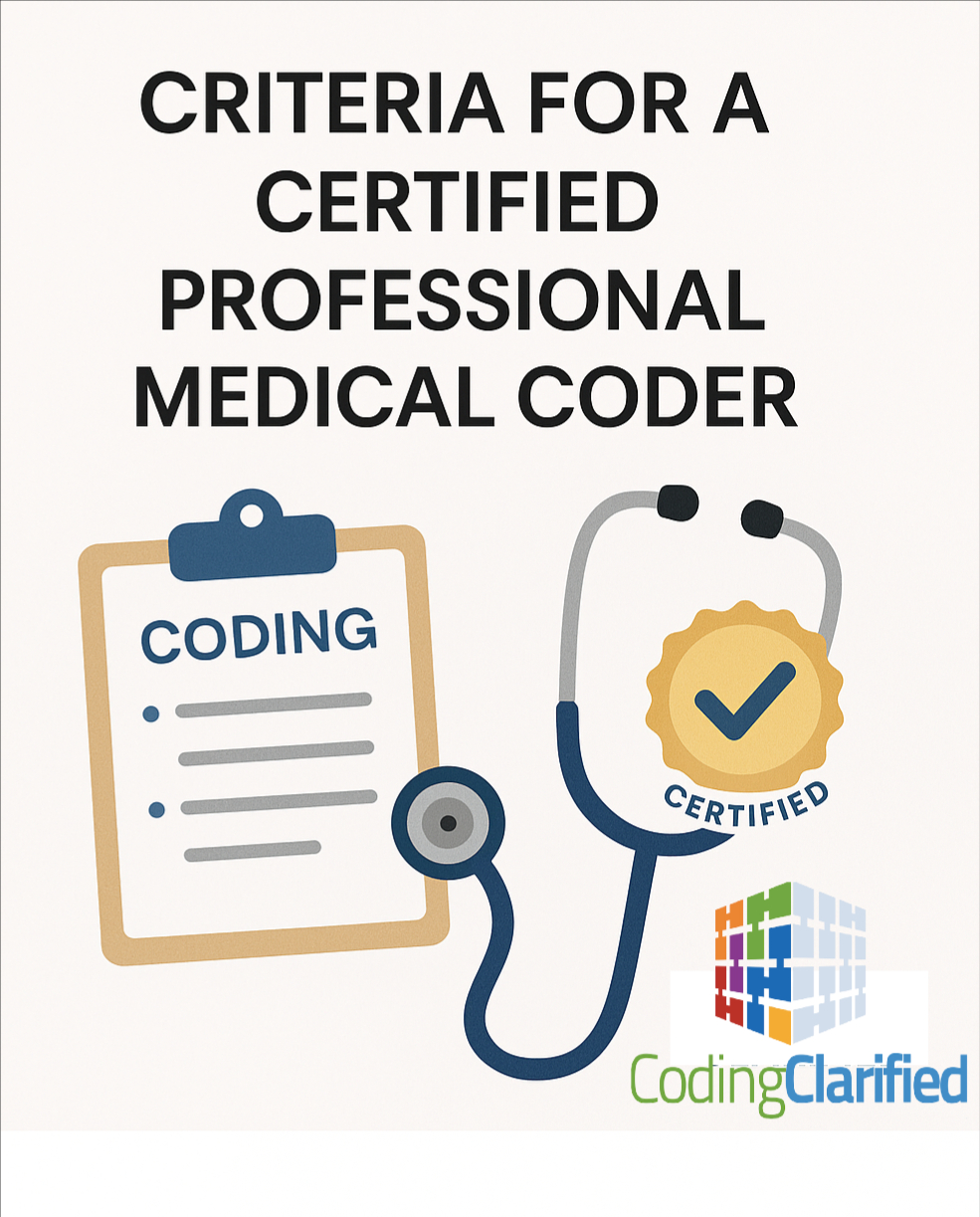Navigating the Path to Certification: Criteria for Becoming a Certified Professional Coder (AAPC CPC)
Medical coding is a cornerstone of the healthcare revenue cycle, ensuring accurate documentation and reimbursement. At the heart of this process are Certified Professional Coders (CPCs), specialists who transform healthcare diagnoses, procedures, medical services, and equipment into universal medical alphanumeric codes. Credentialing through the American Academy of Professional Coders (AAPC) as a CPC validates a coder’s expertise and commitment to professional standards. This blog outlines the key criteria and steps involved in earning the CPC credential.
Educational Requirements
While a formal degree is not mandatory, a background in health information management, anatomy, physiology, or medical terminology significantly enhances one’s readiness for certification. Many aspiring coders complete a medical coding training program, which may be offered by:
-
Community colleges
-
Vocational schools
-
Online certification programs (including those provided by Coding Clarified, an AAPC partner)
A well-rounded program prepares candidates for real-world scenarios, covering CPT®, ICD-10-CM, and HCPCS Level II coding systems.
Coding Clarified can train you for the CPC, as we are an AAPC-approved education provider. You may even qualify for a scholarship/grant!
Coding Clarified’s Medical Coding course includes the following:
Access to the online medical coding course using the AAPC-approved curriculum
CPT, ICD10, HCPC, Workbook & Textbook
Instructor audio/video files for each chapter to implement notes into your manuals
1:1 time with instructor as needed
Professionally written resume
AAPC Membership
CPC Exam Voucher
Job placement assistance/resources
Online HCC Internship
Free 50-Question Practice Exam
Practicode
https://codingclarified.com/mastering-online-medical-coding-training/
https://codingclarified.com/purchase/
https://codingclarified.com/scholarships/
AAPC CPC Certification Guide https://codingclarified.com/cpc-guide/
AAPC Membership
Before taking the CPC exam, candidates must become members of the AAPC. Membership offers access to continuing education resources, networking opportunities, and industry updates. As of 2025, the annual AAPC membership fee is approximately $205, but discounts may be available for students or bundles with certification packages.
AAPC Membership https://www.aapc.com/membership/
Examination Criteria
The CPC exam is a rigorous, multiple-choice assessment that tests a coder’s knowledge of:
-
Coding guidelines and conventions
-
Medical terminology and anatomy
-
CPT®, ICD-10-CM, and HCPCS Level II codes
-
Compliance and regulatory standards
-
Clinical scenarios and documentation interpretation
Exam Details:
-
Format: 100 multiple-choice questions
-
Duration: 4 hours
-
Passing Score: 70%
-
Delivery: In-person at testing centers or online through remote proctoring
Candidates are allowed to bring approved code books (CPT®, ICD-10-CM, HCPCS Level II) or use ebooks preloaded into the exam.
Manuals vs e-books for CPC https://codingclarified.com/manuals-vs-ebooks-for-aapc-cpc-exam/
Choosing the Correct AAPC CPC Exam Format for You FAQs https://codingclarified.com/taking-the-aapc-cpc-exam-format-faqs/
Practical Experience
Although not mandatory to sit for the CPC exam, practical coding experience is essential for full certification. Those who pass the exam without prior experience receive the CPC-A (Apprentice) designation. To remove the apprentice status and earn full CPC credentials, individuals must either:
-
Have at least two years of on-the-job coding experience, or
-
Complete the AAPC’s Practicode online internship program or an 80-hour coding course.
Documentation of experience is required for status elevation.
AAPC Practicode (Coding Clarified gives our students access to Practicode) https://www.aapc.com/shop/software-and-services/practicode-2-0
Continuing Education and Ethics
Maintaining CPC certification involves:
-
Earning 36 Continuing Education Units (CEUs) every two years.
-
Abiding by the AAPC Code of Ethics, which emphasizes accuracy, integrity, and professionalism in coding practices.
These requirements ensure that certified coders remain current with ever-evolving medical coding standards and compliance regulations.
Maintaining your CPC credential with CEU https://codingclarified.com/maintaining-your-cpc-credential-with-ceu/
Becoming a Certified Professional Coder is a rewarding career step for individuals passionate about healthcare and data accuracy. With the right education, preparation, and dedication, achieving the CPC credential opens doors to numerous job opportunities and advancement in the healthcare industry. Whether working in hospitals, physician offices, or insurance companies, CPCs play a vital role in the healthcare system’s efficiency and accountability.

